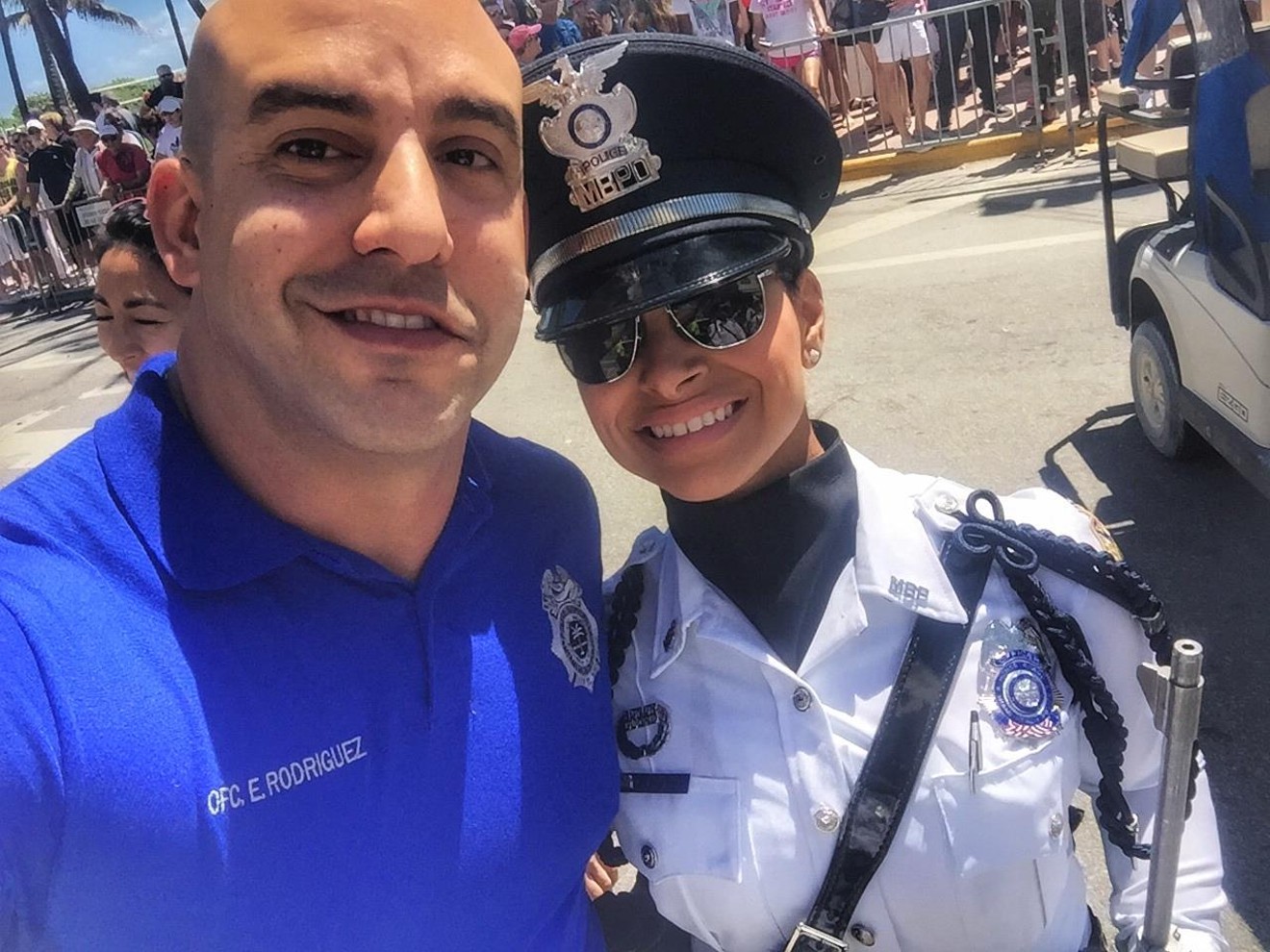Representatives from two civil liberties organizations say Orsetti's arrest last Thursday could violate the First Amendment, depending upon exactly what Orsetti was posting under the fake profile. The Florida chapter of the American Civil Liberties Union and the national Electronic Frontier Foundation say MBPD needs to provide hard evidence that Orsetti's conduct was an actual public menace, as opposed to an annoying joke.
As of today, it's impossible to tell — after Beach PD noticed the account in January, they had Twitter suspend Orsetti's handle, @ernierodmb. But on January 19, when an NBC 6 reporter told Rodriguez about the fake page, he treated it as a joke — which Florida ACLU Director Howard Simon says might be a bad sign for the department's case.
"Although the content of the now-suspended Twitter account will determine the facts of the case, it is very concerning that Miami Beach Police would arrest someone for engaging in what their own spokesperson initially treated as parody, protected by the right of free speech," Simon said via email. "If this was indeed just a parody account, we hope to hear from Mr. Orsetti to see the tweets in question. We also hope that the State Attorney would not want to become one of the first prosecutors in the country to use a law prohibiting the impersonation of a police officer to punish someone for online political expression.”
Neither the city's news release nor the official arrest report lists Orsetti's online remarks. So far, the city has far simply said the 48-year-old suspect "interacted" with local media, public officials, and citizens before his Twitter account was shut down. From that information alone, it's impossible to tell if Orsetti's actions were illegal. New Times asked Miami Beach Police Chief Dan Oates Thursday for more information, but Oates has not responded.Lol, it is generating some great laughs via text! #WhoCreatesFAKEaccounts https://t.co/voaFOYztoO
— Ernesto Rodriguez (@ERodriguez782) January 19, 2017
However, Oates explained a bit more to the Miami Herald — and hinted that his officers arrested Orsetti more for what he could have done rather than what he actually did.
"Who knows what damage he could’ve done to Rodriguez’s reputation and the brand of the department had we not noticed and gotten Twitter to shut off the account,” Oates told the Herald.
David Green, a lawyer for the Electronic Frontier Foundation, tells New Times there's a fine line between "parody" and "causing public harm." He, too, says that the case concerns him but that it's too early to call the arrest unconstitutional.
"If the only reason the government wants to censor something is if it annoys or bothers, that's not a valid reason," Green says. "If he was doing something, wanted people to believe it was the police spokesperson, that raises different issues. I'm not saying that would definitely be illegal either, but it raises different issues."
Police departments have not had much luck prosecuting similar cases: In 2014, the ACLU sued after cops raided a house in Peoria, Illinois. One of the home's residents, who was running an account making fun of the@Nine9dotCOM #WednesdayMotivation #Model from #MiamiBeach @DrKenWilcox #SouthBeach #GianniVersace #GianniTribute @Versace #SoBe #LaserCard pic.twitter.com/A3Gu9hlWTr
— Ernesto Orsetti (@ErnestoOrsetti) July 19, 2017
According to the Herald, Orsetti has had multiple run-ins with Beach PD. Chief Oates told the paper Orsetti was once banned from city hall for allegedly harassing employees and has frequently made complaints against cops and city officials. According to county court records, Orsetti was once arrested for assault and battery, but those charges were dropped.
That fact might explain why the department went the extra mile to charge Orsetti with a crime after shutting down his Twitter account. If this arrest were simply to shut up a critic, Simon says it's not legal.
"Every police officer is sworn to uphold the Constitution, which protects everyone’s right to free speech," Oates said. "Public officials, including police, are not immune from criticism nor parody; in fact, criticism, and sometimes mockery, comes with the territory of being a public official. Under the First Amendment, the police cannot arrest people for mocking public figures — including, and especially, when the police themselves are the targets of criticism."












